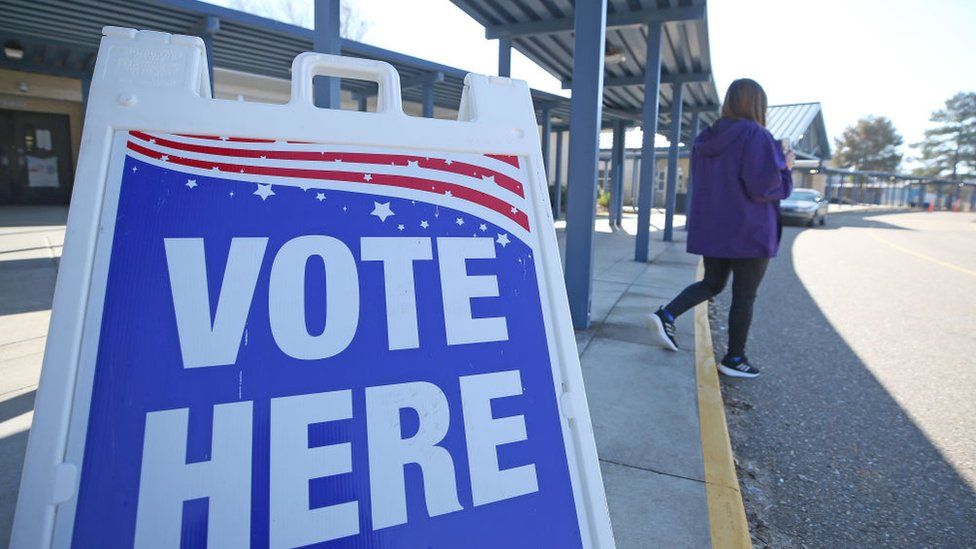In a hotly debated voting rights case, the US Supreme Court allowed Louisiana to establish a new district with a majority-black population.
A lower court case that might force Louisiana to redo its electoral map was put on hold, but the top court lifted it.
Lower courts had ruled that the maps raised questions about whether black voters' influence in the state had been diminished.
The state's black population is almost one-third of the total.
It is the second important voting rights case that the Supreme Court has decided this term. On June 8, its justices ruled that Alabama, a different southern state, had to redraft the boundaries of its congressional districts to make room for an additional district with a majority-black population.
As a result of the decision on Monday, Louisiana may need to redraft its US House of Representatives district map to increase the representation of black voters.
The justices of the Supreme Court implied that the issue should be settled "before the Louisiana congressional elections in 2024.". The US Court of Appeals for the Fifth Circuit will now hear the case.
The maps for the US House of Representatives districts are made by the state legislatures of each individual state. However, partisan motives can sometimes be seen in the process.
Maps for the US House of Representatives are frequently drawn to favor the candidates of states with a strong political party. Critics of the practice claim that it may lead to disparities in the voting power of voters, including those along racial lines.
In March 2022, a group of voters and voting rights activists filed a lawsuit against the state of Louisiana, alleging that the state's new congressional map would weaken the influence of Black voters and violate Section 2 of the Voting Rights Act. .
After decades of Black citizens' systematic emancipation from southern states, the historic 1965 law was passed at the height of the civil rights movement. .
Plaintiffs in the case Ardoin v. Robinson cited this background in their complaint.
They claimed that the Louisiana congressional map "continues Louisiana's long history of maximizing political power for white citizens by disenfranchising and discriminating against Black Louisianans. " .
Plaintiffs argued that despite the fact that Black people made up a third of the state's population and were only able to elect representatives in one of the state's six US House districts under the new congressional redistricting plan adopted by the Republican-dominated state.
A federal court blocked the new map in June 2022 and ordered the state to create a new one. The matter was taken to the Fifth Circuit of the US Court of Appeals.
Louisiana ultimately submitted a request for an emergency hearing to the US Supreme Court.
Louisiana was permitted to use its current map in the 2022 midterm elections after the Supreme Court temporarily put the case on hold.
But in its decision on Monday, the US Supreme Court ended its moratorium on the lower court's judgment.
This opens the door for Louisiana to be compelled to create a new map prior to the 2024 election cycle, one that might permit Black voters to select representatives in two of the state's US House districts rather than just one.
One of the attorneys for the plaintiffs, Abha Khanna of Elias Law Group, stated in a statement, "Black voters in Louisiana have suffered one election under a congressional map that unlawfully dilutes their political influence.
In order to ensure that Black Louisianians are finally given fair representation in the state's congressional delegation, she said, "Louisiana is now on track to add an additional minority opportunity district in time for 2024.".
Democrats may have an advantage in their effort to retake the US House in the upcoming 2024 congressional elections because Black voters in Louisiana tend to support them in large numbers.







